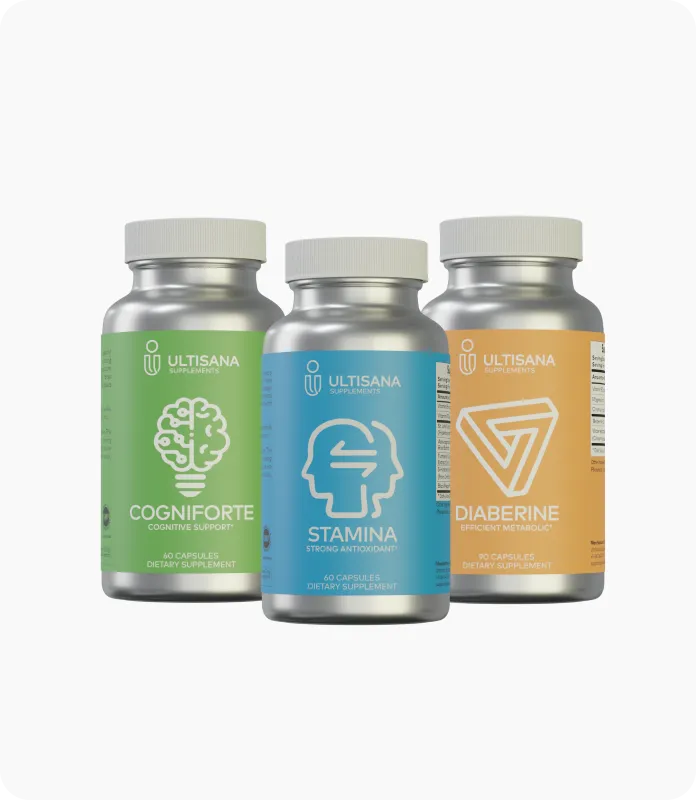Attention Deficit Hyperactivity Disorder (ADHD) is a common neurodevelopmental disorder affecting millions of people worldwide. Individuals with ADHD often experience difficulties with attention, focus, and impulse control. One of the most commonly consumed substances in the world, caffeine, is sometimes believed to offer benefits for those with ADHD, but how exactly does caffeine affect ADHD?
In this comprehensive guide, we will explore the relationship between caffeine and ADHD, looking at how caffeine can both help and hinder individuals with this condition.
What is ADHD and How Does it Affect the Brain?
Before diving into how caffeine interacts with ADHD, it’s essential to understand the disorder itself. ADHD is characterized by symptoms such as:
- Inattention
- Hyperactivity
- Impulsivity
These symptoms are caused by irregularities in brain chemistry, particularly in the regulation of neurotransmitters such as dopamine and norepinephrine. Dopamine plays a key role in attention and focus, and many medications for ADHD, such as stimulants, aim to increase the availability of dopamine in the brain.
The Role of Caffeine in the Brain
Caffeine is a central nervous system stimulant that is widely known for increasing alertness and reducing fatigue. It works by blocking the action of adenosine, a neurotransmitter that promotes relaxation and sleepiness, and by increasing the production of dopamine and norepinephrine.
This boost in dopamine and norepinephrine can have similar effects to the stimulant medications commonly prescribed for ADHD, such as Adderall or Ritalin, which also target these neurotransmitters to help improve focus and control impulsivity.
How Does Caffeine Affect ADHD? The Positive Effects
Caffeine’s impact on individuals with ADHD is complex. For some, caffeine can provide notable benefits, especially when consumed in moderate amounts. Here are some of the potential positive effects of caffeine for individuals with ADHD:
1. Increased Focus and Attention
For many individuals with ADHD, caffeine may help increase focus and attention, making it easier to complete tasks. This effect is primarily due to caffeine’s ability to enhance dopamine levels in the brain, similar to the way stimulant medications work. The increase in dopamine helps improve focus and concentration, which can be beneficial for individuals who struggle with these aspects due to ADHD.
2. Improved Cognitive Performance
Some studies suggest that caffeine can enhance cognitive performance, particularly in tasks requiring concentration, memory, and alertness. This can be especially helpful for people with ADHD, who may find it challenging to stay on task or remember details.
3. Enhanced Mood and Reduced Fatigue
ADHD can often lead to frustration, mood swings, and fatigue, which can exacerbate the symptoms of the disorder. Caffeine, as a mild stimulant, can provide a mood boost, reducing feelings of irritability and tiredness. This can help individuals with ADHD feel more energized and capable of managing their day-to-day tasks.
4. Short-Term Relief for Hyperactivity
In some cases, caffeine may have a calming effect, especially when paired with l-theanine, a combination found in green tea. For individuals with ADHD who experience hyperactivity, caffeine may help calm them down by promoting focus and reducing the urge to fidget or act impulsively. However, this effect varies from person to person and depends on the individual’s tolerance to caffeine.
How Does Caffeine Affect ADHD? The Negative Effects
Despite its potential benefits, caffeine may not be a suitable option for everyone with ADHD. In fact, for some individuals, caffeine can have adverse effects, which may worsen symptoms. Here are some of the negative impacts caffeine may have on people with ADHD:
1. Increased Anxiety and Jitteriness
While caffeine can help improve focus and attention in some people, it can also have the opposite effect. In individuals with ADHD, excessive caffeine consumption may lead to feelings of nervousness, restlessness, and anxiety. This is particularly true for people who are sensitive to stimulants. The jittery feeling associated with high caffeine intake can worsen anxiety symptoms, making it difficult for individuals with ADHD to concentrate or remain calm.
2. Disrupted Sleep Patterns
One of the most well-known side effects of caffeine is its impact on sleep. Caffeine can interfere with the ability to fall asleep and stay asleep, particularly if consumed later in the day. For individuals with ADHD, who often already struggle with sleep disturbances, caffeine can exacerbate this issue. Poor sleep can, in turn, worsen ADHD symptoms, including inattention, irritability, and difficulty focusing.
3. Overstimulation and Impulsivity
In some individuals with ADHD, caffeine can cause overstimulation, leading to impulsive behavior or difficulty controlling emotional reactions. This effect is more likely to occur when caffeine is consumed in large quantities. High doses of caffeine can lead to a spike in energy followed by a crash, which may worsen feelings of irritability or impulsivity, particularly in children or those sensitive to stimulants.
4. Decreased Effectiveness of ADHD Medications
For some individuals with ADHD, caffeine may interfere with the effectiveness of their prescribed ADHD medications. The stimulant effect of caffeine combined with medication can sometimes lead to an overstimulation of the nervous system, potentially causing unwanted side effects such as increased heart rate or agitation. In some cases, caffeine may even interfere with the absorption or effectiveness of medications like Ritalin or Adderall.
How Much Caffeine is Safe for People with ADHD?
The optimal amount of caffeine for individuals with ADHD can vary widely depending on personal tolerance levels, age, and the presence of other health conditions. For some individuals, even a small amount of caffeine can be beneficial, while for others, it may exacerbate symptoms.
In general, it’s advisable for individuals with ADHD to consume caffeine in moderation. Excessive caffeine intake can lead to side effects like insomnia, anxiety, and jitteriness. According to the Mayo Clinic, up to 400 milligrams of caffeine per day (about four 8-ounce cups of brewed coffee) is considered safe for most adults, but those with ADHD may need to adjust their intake based on how their body reacts.
Should People with ADHD Drink Coffee or Energy Drinks?
Many people with ADHD wonder whether coffee, energy drinks, or caffeinated sodas can help improve their symptoms. While caffeine can improve focus for some individuals, energy drinks are not recommended due to their high sugar content and additional stimulants, which can increase anxiety and disrupt sleep.
It is better for individuals with ADHD to opt for natural sources of caffeine, such as coffee or tea, in moderate amounts. Additionally, pairing caffeine with a healthy meal or snack can help prevent blood sugar crashes, which may worsen ADHD symptoms.
Alternatives to Caffeine for ADHD Management
If caffeine doesn’t seem to be working for you or causes unwanted side effects, there are alternative approaches for managing ADHD. Some of the most effective strategies include:
- ADHD Medications: Stimulant medications like Adderall, Ritalin, and Vyvanse are often prescribed to help improve focus and attention by increasing dopamine levels in the brain.
- Behavioral Therapy: Cognitive behavioral therapy (CBT) can help individuals with ADHD manage their symptoms by developing coping strategies and organizational skills.
- Dietary Changes: A well-balanced diet with adequate protein, fiber, and essential nutrients can support brain health and reduce ADHD symptoms. Some individuals benefit from eliminating foods with artificial additives or excess sugar.
- Exercise: Regular physical activity can help reduce hyperactivity, improve focus, and increase the release of dopamine, providing natural relief for ADHD symptoms.
FAQs Related To How Does Caffeine Affect ADHD
1. Can caffeine be used as a natural treatment for ADHD?
While caffeine can have a mild stimulating effect on the brain, it is not a substitute for medical treatment for ADHD. It may temporarily help with focus for some individuals, but it does not address the underlying neurochemical imbalances that cause ADHD. Professional treatment, including medication and therapy, is typically more effective.
2. How does caffeine compare to ADHD medications like Adderall or Ritalin?
Caffeine and ADHD medications like Adderall and Ritalin both stimulate the central nervous system and increase dopamine levels, but ADHD medications are specifically designed to target the areas of the brain responsible for attention and impulse control. Caffeine is a mild stimulant, and while it may offer temporary focus benefits, it is not as targeted or potent as prescription ADHD medications.
3. Can caffeine make ADHD symptoms worse for some people?
Yes, for some individuals with ADHD, caffeine can exacerbate symptoms such as anxiety, jitteriness, or difficulty sleeping. This is especially true if caffeine is consumed in large amounts or too late in the day. People with ADHD may be more sensitive to the stimulating effects of caffeine.
4. Does caffeine help with hyperactivity in people with ADHD?
Caffeine can have a calming effect on some individuals with ADHD, as it increases dopamine levels in the brain, which may help with focus and reducing impulsivity. However, its effects on hyperactivity are not consistent for everyone, and in some cases, caffeine may increase restlessness or cause nervous energy.
5. How much caffeine is safe for people with ADHD?
The ideal amount of caffeine varies from person to person, but it’s generally recommended to keep caffeine intake moderate, especially for those with ADHD. Consuming around 100-200 mg of caffeine per day (about one to two cups of coffee) may be a good starting point, but individuals should pay attention to how their body reacts.
6. Can caffeine be used to enhance the effects of ADHD medication?
In some cases, caffeine may be used in conjunction with ADHD medications to enhance focus. However, it’s essential to speak with a healthcare professional before combining caffeine with prescription medications. Too much caffeine may increase side effects like jitteriness, anxiety, and heart palpitations.
7. Does caffeine improve ADHD-related memory and cognitive performance?
Caffeine may offer temporary improvements in attention and cognitive performance, which can benefit individuals with ADHD. However, its effects on memory and cognitive function are short-term. It can help improve alertness and concentration but will not have a lasting effect on long-term memory or learning.
8. Can caffeine affect sleep in people with ADHD?
Yes, caffeine can interfere with sleep, and this can be particularly problematic for individuals with ADHD, who already tend to have sleep disturbances. Caffeine can stay in the body for several hours, and consuming it late in the day can make it harder to fall asleep or stay asleep.
9. Are there any alternatives to caffeine for managing ADHD symptoms?
Yes, there are several alternatives to caffeine for managing ADHD symptoms. These include medications prescribed by a healthcare provider, behavioral therapy, exercise, dietary adjustments (such as avoiding sugar and processed foods), and relaxation techniques like mindfulness meditation.
10. Does caffeine interact with ADHD medications?
Caffeine can interact with certain ADHD medications, especially stimulant medications like Adderall or Ritalin. Combining caffeine with these medications may increase the risk of side effects such as anxiety, elevated heart rate, and high blood pressure. It’s essential to consult a healthcare professional to ensure that caffeine consumption is safe when taking ADHD medication.
Is Caffeine a Good Option for Managing ADHD?
Caffeine can have both positive and negative effects on individuals with ADHD, depending on how their body reacts to the stimulant. For some, caffeine can increase focus, improve mood, and reduce fatigue, making it a helpful tool for managing ADHD symptoms. However, for others, excessive caffeine intake can worsen anxiety, disrupt sleep, and cause overstimulation.
Ultimately, the key to using caffeine effectively for ADHD is moderation. It’s important to pay attention to how your body responds to caffeine and adjust your intake accordingly. Additionally, caffeine should not be relied upon as the primary treatment for ADHD. For best results, individuals with ADHD should consult with a healthcare provider to develop a comprehensive management plan that may include medication, therapy, and lifestyle changes.
By understanding how does caffeine affect ADHD, individuals can find a balance that works for them and supports their overall well-being.
About Us
Ultisana Supplements is a family-owned wellness company focused on community and culture as key pillars of health. Our unique, natural formulas, trusted by doctors in Central America for years, are designed to target health concerns with respect for traditional remedies while being backed by science.

Our Products


